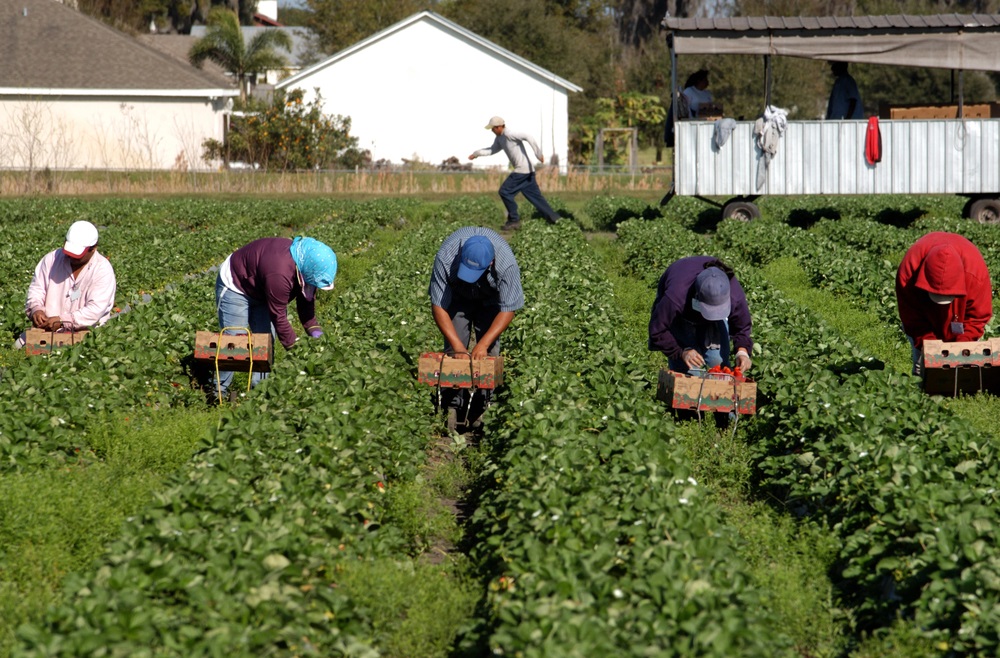Right-wing anti-immigrant parties have recently gained power in a number of European countries. But their immigration policies often seem at odds with campaign rhetoric. Here it is The Economist:
In April 2023, six months after the far-right government led by Giorgia Meloni came to power, its Agriculture Minister Francesco Lollobrigida chided Italians to have more babies or be “replaced” by foreigners. Yet in practice, Mr Lollobrigida has pushed for more visas for agricultural workers. While Ms. Meloni is trying to send many asylum seekers away for treatment in Albania, she welcomes more labor immigration as long as it is kept under control.
The reason is pure necessity. Italy’s agricultural sector faces an annual labor shortage of around 200,000, says Massimiliano Giansanti, president of Confagricoltura, a farmers’ association. The legal workforce in agriculture, including seasonal workers, is approximately one million. A third are foreigners. That’s almost all among those aged 18-35, says Mr Giansanti; young Italians regard agriculture as “sloppy work under the sun”. In addition, around 230,000 people work in the sector’s shadow economy, including many undocumented migrants from Asia and Africa.
And it’s not just Italy. A similar process is taking place in Poland and the Netherlands:
The far-right Law and Justice party that governed Poland from 2015 to 2023 denounced non-European immigration. But in practice, the number of work permits issued to Asians and Latin Americans increased fivefold, to 275,000 by 2023. Many of these involved bribes. . . .
The Netherlands embodies the tension between farmers and anti-immigrant groups. The largest party in the far-right government that took office in July is the anti-immigrant Freedom Party. But that also includes the Farmer Citizen Movement, which opposes any restrictions that could hinder the picking of the berries.
In the US, Donald Trump earned the votes of many opponents of immigration. But even within the Republican Party, there is a wide divide between social conservatives who favor less immigration and business conservatives who favor more immigration. In recent weeks, a rift has emerged within the Republican Party, with the tech bloc led by Elon Musk calling for more immigration. Trump himself suggested that he liked the visas that allowed him to employ unskilled workers at his various properties:
President-elect Donald J. Trump on Saturday appeared to weigh in on a heated debate among his supporters over the role of skilled immigrant workers in the U.S. economy, saying he had often used the visas for those workers and supported the program. . . .
But his comments — which were enthusiastically embraced by the tech industry as a show of support — may muddy the waters because Mr. Trump appears to have made only sparing use of the H-1B visa program, which allows skilled workers such as software engineers to enter the United States States can work. for a maximum of three years and can be extended to six years.
Instead, he is a frequent and long-time user of the similarly named, but very different, H-2B visa program, which is for unskilled workers such as gardeners and housekeepers, as well as the H-2A program, which is for agricultural workers.
To be fair, there is a pretty general consensus within the Republican party about unrestrained illegal immigration is a problem. But even in that area there are difficult decisions to be made. Deporting all 11 million illegal immigrants would have a major impact on sectors such as agriculture, catering and construction. There are no (politically) easy answers.
In the past, economic recessions have been the most effective technique for reducing illegal immigration. It will be interesting to see how this issue will develop in the coming months.

